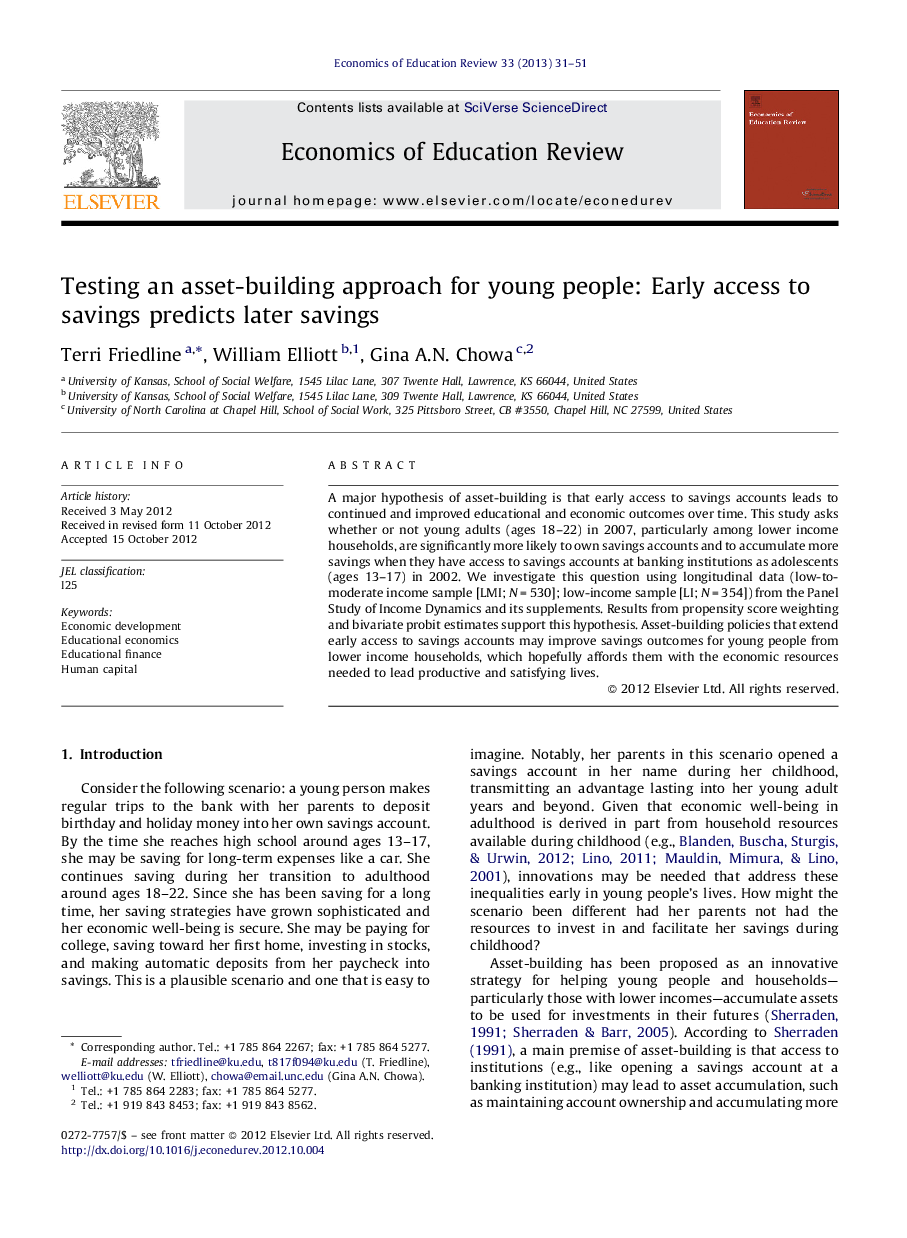| Article ID | Journal | Published Year | Pages | File Type |
|---|---|---|---|---|
| 354327 | Economics of Education Review | 2013 | 21 Pages |
A major hypothesis of asset-building is that early access to savings accounts leads to continued and improved educational and economic outcomes over time. This study asks whether or not young adults (ages 18–22) in 2007, particularly among lower income households, are significantly more likely to own savings accounts and to accumulate more savings when they have access to savings accounts at banking institutions as adolescents (ages 13–17) in 2002. We investigate this question using longitudinal data (low-to-moderate income sample [LMI; N = 530]; low-income sample [LI; N = 354]) from the Panel Study of Income Dynamics and its supplements. Results from propensity score weighting and bivariate probit estimates support this hypothesis. Asset-building policies that extend early access to savings accounts may improve savings outcomes for young people from lower income households, which hopefully affords them with the economic resources needed to lead productive and satisfying lives.
► Do lower-income young people benefit from having early access to savings accounts? ► We investigate this question using longitudinal data from the PSID. ► Results indicate that early access to accounts may improve economic well-being. ► Improved economic well-being may help lower-income young people lead better lives.
